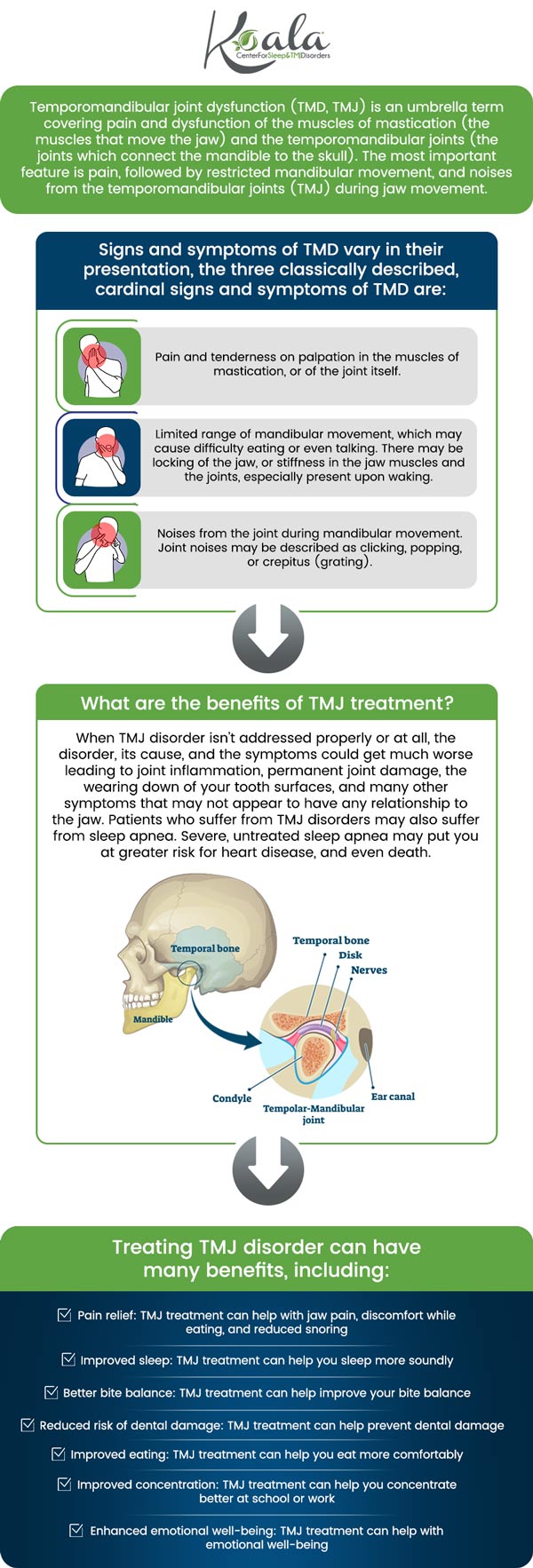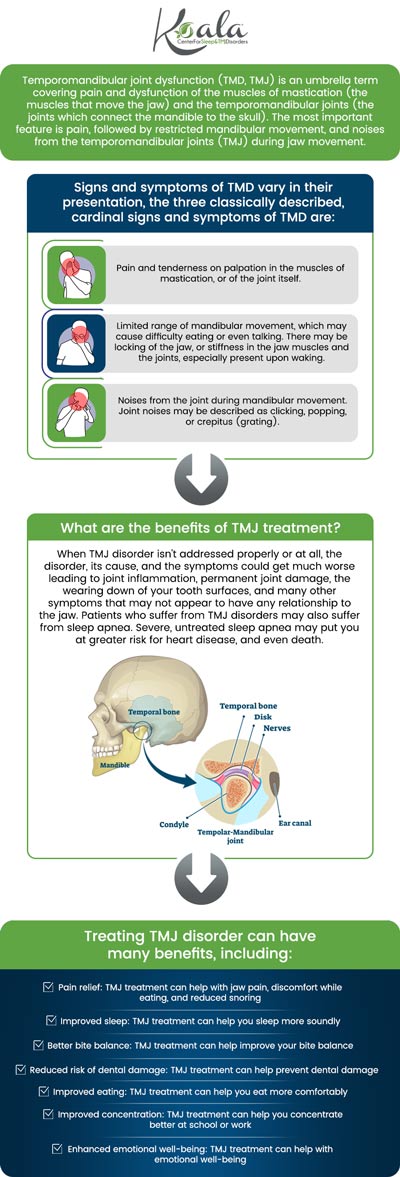Why Is TMJ More Common in Women?
TMJ may be more common in women because of various reasons. Visit Koala® Center For Sleep & TMJ Disorders to get proper medical help. For more information, please call us or schedule an appointment online.


Table of Contents:
What are the risk factors for TMJ disorder?
So why is TMJ more common in women?
How is TMJ treated in women?
TMJ disorder is quite common in the U.S., with tens of millions of Americans suffering from it, and out of these people, most tend to be women. In fact, women are diagnosed with TMJ disorder five times as often as men are, and women are also diagnosed with severe symptoms nine times as often. But why is this so? Let’s look into why so you or the women in your life can better understand this common condition.
Researchers aren’t sure precisely why people get TMJ disorder, but there may be one or multiple factors involved in a patient’s case. For example:
– A microtrauma or trauma to the jaw or cheek
– Poor posture that results in neck strain and abnormal jaw function
– Teeth grinding and/or clenching that puts pressure on the temporomandibular joint (TMJ)
– Stress which can cause jaw clenching and/or muscle tension
– Gum chewing or nail biting that causes inflammation in the TMJ
– A genetic predisposition to pain sensitivity
Women aged 18 to 44 are at an increased risk of getting TMJ disorder, and there could be one or many reasons for this. Let’s talk about these reasons next.
There are several theories as to why TMJ disorder occurs more often in women, and one is that hormonal differences are to blame. This could account for why the disorder is diagnosed commonly during women’s childbearing years. The levels of certain hormones can affect ligament laxity which can affect joint play and, as a result, irritate joints like the jaw joint.
Also, there are anatomical differences between the two sexes in the jaw and skull. Males typically have longer, wider, thicker upper jaw bones. This and other male anatomical factors give the TMJ a more stable environment in which to move.
It may be that differences in stress management between the sexes could be linked to more women getting TMJ disorder. Stress can cause teeth clenching, grinding, and even poor breathing habits that may increase stress on the TMJ and lead to disorder.
The final theory is that a particular gene variant is actually to blame, as this gene may cause an increased sensitivity to pain. It could be that this gene is more common in women than men. Genetics, behavioral differences, anatomic differences, and/or hormones may be why TMJ disorder is so complex and more common in women.
As complicated as TMJ disorder is, especially in women, treatment isn’t necessarily so complicated. The first step is for you and a professional to understand the factors involved in your particular case. One of our professionals here at Koala® Center For Sleep & TMJ Disorders can help with this, and then we can discuss treatments like massages, physical therapy for your TMJ, or oral appliance therapy. With oral appliance therapy, a simple, custom-made mouth insert is used to prevent many of the conditions that can cause TMJ disorder, like teeth grinding or muscle tension.
To learn more about treatment, reach out to us here at our clinic and set up a consultation with us! We have multiple locations throughout the U.S. in Illinois, Indiana, Missouri, Texas and Wisconsin. Please see our Locations page for the location nearest you, or you can call us at (855) 977-0400 for your consultation. We’d be happy to speak with you for any reason, so if you believe we can help you, don’t hesitate to call us today here at Koala® Center For Sleep & TMJ Disorders!

Additional Services You May Need
▸ KoalaKIDZzz®
▸ Sleep Apnea
▸ Snoring
▸ TMJ Disorder
▸ Fatigue
▸ Sleep Disorders
▸ Weight Loss
▸ CPAP Alternative
▸ Oral Appliances




